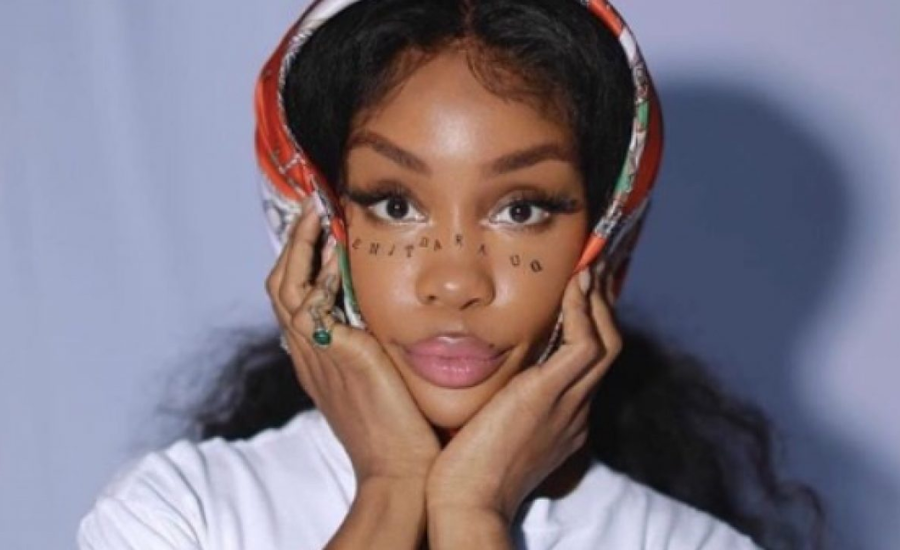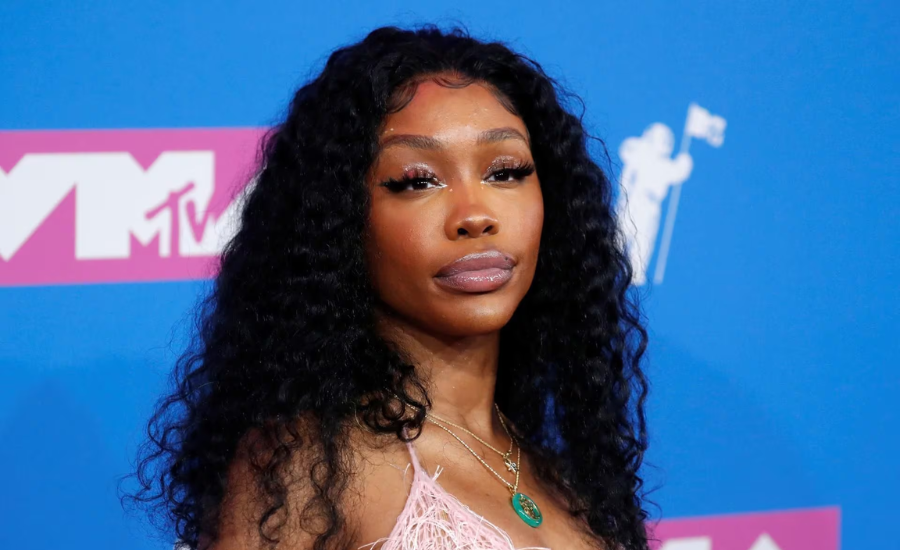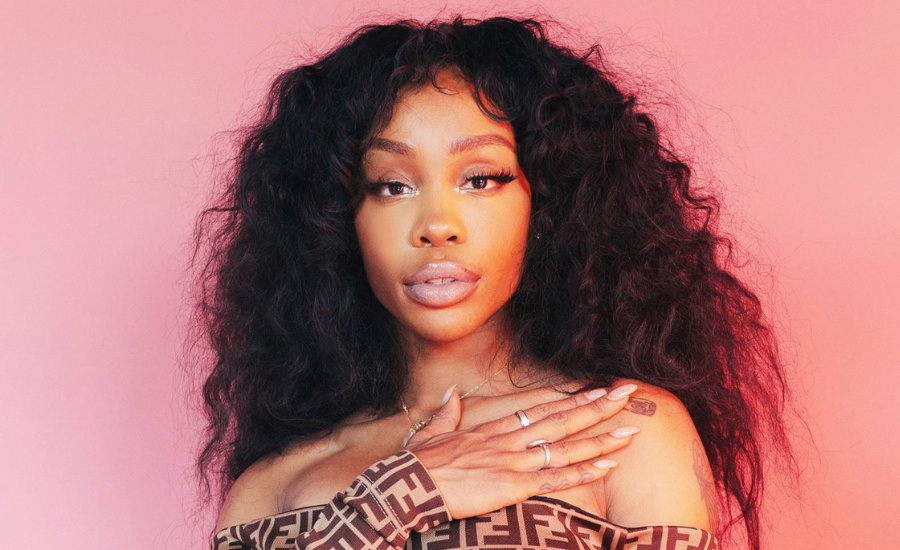SZA identifies as a practicing Muslim, openly discussing her faith in the one true God and her connection to the five pillars of Islam in interviews. Interestingly, the last two letters of her stage name, “SZA,” stand for “Sovereign Zigzag Allah.” Her music delves into themes of self-worth, self-acceptance, and navigating the ups and downs of life as a young woman, akin to her friend Dua Lipa, who also grew up in a Muslim household. Consequently, her music is regarded as inspiring and empowering.
What Is SZA’s Religion?

SZA cherishes her Muslim heritage, which she inherited from her father, Abdul Mubarak-Rowe. In her upbringing, her family embraced a beautiful mix of faiths, with her mother, Audrey Rowe, practicing Christianity. Despite their religious differences, SZA’s parents prioritized unity and love, agreeing that their children would follow their father’s Islamic faith.
Their household was a place of togetherness, where SZA’s mom happily participated in attending Jumat, the Friday services, alongside her Muslim family. In a touching demonstration of acceptance, her father also welcomed their mom’s tradition of decorating small Christmas trees during the holiday season. This nurturing environment of religious harmony laid the groundwork for SZA’s spiritual journey.
Is Sza Muslim Age, Height, Weight
Based on her birthdate, SZA is currently 30 years old. Standing at 5 feet 6 inches tall and weighing approximately 56 kilograms, she possesses a graceful and captivating presence. With enchanting brown eyes and luscious dark hair, SZA exudes a natural beauty that resonates both on and off the stage.
Beyond her physical attributes, SZA’s allure lies in her talent and charisma as a musician. Her soulful voice and emotive lyrics have garnered widespread acclaim, captivating audiences worldwide. As an artist, she uses her music to express themes of self-discovery, empowerment, and resilience, resonating deeply with her fans.
Offstage, SZA is known for her down-to-earth demeanor and genuine personality. Despite her fame, she remains humble and approachable, connecting with her audience on a personal level. Whether through her music or her presence in the public eye, SZA continues to inspire and uplift those around her with her authenticity and artistry.
Are SZA Parents Religious?
Unfortunately, during her early years, X lived in Maplewood, New Jersey. Her father worked for CNN and followed the Muslim faith, while her mother held a prominent position at AT&T and practiced Christianity. Despite growing up in a household that embraced different faiths, SZA received a strict Islamic upbringing and even wore a hijab during her childhood.
However, after the tragic events of 9/11, X faced harassment, which led her to stop wearing the hijab. She explains that her decision was influenced by her frequent presence on stage among other musicians, as she didn’t want to unintentionally offend anyone’s religious beliefs.
She Has Revealed That She Will Always Respect Islam

During her sophomore year of high school, SZA felt a strong pull towards strengthening her connection to her faith. It was like finding a safe harbor amidst the storms of life. However, this decision came with its challenges. Once again, she faced hurtful mockery and harassment, which led her to remove her headscarf and modest clothing. This choice strained her relationship with her father, and it took time and effort to mend the rift.
Today, although SZA still holds onto her Muslim identity, she no longer wears the hijab or traditional Islamic attire. This decision is deeply rooted in her respect for her religion. She believes that wearing the hijab while performing onstage or appearing in music videos would not align with the values of Islam.
Despite her outward appearance, SZA’s faith remains a fundamental part of her life. She continues to hold onto her belief in God and the core principles of Islam. For her, Islam provides a sense of clarity and security in a world full of uncertainties. It offers guidance and comfort, even when faced with challenges and misunderstandings.
Does SZA Talk About Being A Muslim?

In 2021, during a live broadcast on TikTok alongside Muslim Girl, SZA engaged in a heartfelt conversation about her Islamic upbringing. It was an occasion to honor Muslim Women’s Day, where SZA shared personal stories and reflections on her journey as a Muslim woman. She passionately addressed misconceptions about Islam and the diverse roles women play within the faith, aiming to dispel common misunderstandings. Through her candid dialogue, SZA emphasized the multifaceted nature of Muslim women and their ability to excel in various spheres of life.
During the session, SZA opened up about a period in her life when she questioned her faith during her teenage and early adult years. It was a time of deep introspection and spiritual exploration, a journey many young people can relate to.
While SZA acknowledges that she doesn’t adhere strictly to every aspect of the faith, she still identifies as a follower of Islam. She considers herself a spiritual person who values the core principles of Islam instilled in her since childhood. However, she acknowledges that her personal beliefs may not always align perfectly with mainstream Islamic teachings.
SZA’s openness about her faith journey highlights the complexity and fluidity of religious identity. She joins other notable figures like Bella Hadid and Gigi Hadid in advocating for Islam, particularly in championing Palestinian rights within the realm of the arts.
Sza Career

After graduating from college, SZA found herself at a crossroads regarding her career path. Unsure of what to do next, she turned to making music. However, the early days were tough, marked by struggles and setbacks. Even meeting the renowned Kendrick Lamar in 2011 didn’t immediately propel her career forward. It wasn’t until later that year when Terrence “Punch” Henderson, the head of TDE (Top Dawg Entertainment), recognized her talent and signed her, marking a significant turning point in her career.
In 2013, SZA released her first extended play, “See.SZA.Run,” under TDE. The EP quickly gained traction, becoming a sensation on the internet and setting her on a path toward success.
Her debut studio album, “Ctrl,” released in 2017, further solidified her position in the music industry. With an impressive score of 86 out of 100 on Metacritic, the album showcased her artistry and received critical acclaim.
SZA’s talents extended beyond her solo endeavors; she wrote songs for well-known artists such as Beyoncé, Nicki Minaj, and Rihanna. She also appeared in their music videos, demonstrating her versatility and collaborative spirit.
SZA made a comeback in 2020 with a brand new song called “Hit Different,” featuring Ty Dolla Sign. The song received positive feedback, showcasing her continued relevance in the music industry.
With more projects on the horizon, SZA is eager to continue captivating audiences with her unique sound and creative vision.
Quick Facts
- SZA openly acknowledges her Muslim faith in interviews and incorporates Islamic elements into her stage name.
- SZA’s parents come from different religious backgrounds; her father practiced Islam, while her mother followed Christianity.
- During her upbringing, SZA adhered to a strict Islamic lifestyle and even wore a hijab during her younger years.
- Following the 9/11 attacks, SZA faced harassment, leading her to stop wearing the hijab as a form of self-protection.
- SZA’s music often explores themes of self-esteem and self-acceptance, resonating deeply with her audience.
- SZA’s father is named Abdul Mubarak-Rowe, and her mother goes by Audrey Rowe.
- SZA encountered challenges early in her career but gained recognition after signing with TDE (Top Dawg Entertainment).
- In 2013, SZA released her first EP titled “See.SZA.Run,” followed by her debut studio album, “Ctrl,” in 2017.
FAQS
Q. What is SZA’s religious background?
SZA’s upbringing reflects a blend of religious traditions, with her father practicing Islam and her mother adhering to Christianity.
Q. Did SZA face challenges related to her faith?
Yes, SZA encountered difficulties following the aftermath of 9/11, including harassment, which prompted her to stop wearing the hijab she had worn during her earlier years.
Q. What themes does SZA’s music explore?
SZA’s music often delves into themes of self-esteem and self-acceptance, resonating with listeners by addressing personal struggles and triumphs.
Q. When did SZA gain recognition in her career?
SZA gained widespread recognition after signing with TDE (Top Dawg Entertainment) and releasing her debut EP, “See.SZA.Run,” in 2013, followed by her critically acclaimed studio album, “Ctrl,” in 2017.
Conclusion:
In conclusion, SZA’s journey is a testament to resilience and authenticity in the face of adversity. Despite facing challenges related to her faith and identity, she has emerged as a prominent figure in the music industry, captivating audiences with her honest storytelling and soulful melodies. As she continues to evolve as an artist, SZA’s impact on both music and culture is undeniable, inspiring listeners to embrace their true selves and navigate life’s complexities with courage and grace.

